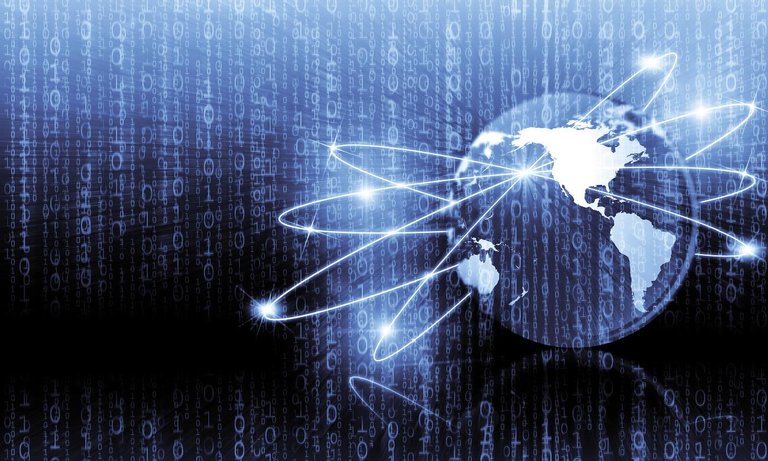Internet: has the promise been fulfilled?

There is no doubt about the achievements or technological contributions of the Network. The network has become everyday and essential for many things, both in personal and professional life. But other changes it has brought (economic, social, political...), have they been for good, as promised to us at the beginning? They are increasingly (or are) skeptical.
The power congestion of a few companies
Take the issue of equal technological opportunities, for example. We believe that any technology company could offer its products and services in the world market thanks to the Internet, which is a step towards economic equality. But the opposite has actually happened: few companies are becoming the main and only global technology provider for more. The main examples of these companies are Google, Facebook, Twitter, Amazon and Microsoft.
Google, which started as a search engine, today is much more: it owns the dominant operating system on smartphones (Android), is also a social network (Google+), offers cloud mail for schools and companies, agenda and office solutions, portals that dominate the videos and maps of the network (Youtube and Google Maps) are yours, with an increasing presence, and a Derome. Facebook and Twitter have assumed the social ways of communicating (the first of them also owns WhatsApp and Instagram). Amazon, the network's main purchasing agent, is also a leader in web hosting. Microsoft, leader in desktop operating systems among others, includes browser, office products and operating system for phones.
In a world where technology is increasingly being used, the power these companies have (and what they will have!) is awesome. They have the market acquired and it is very difficult, almost impossible, to compete with them. I never know if in any economic sector so few hands has accumulated so much power, so little for everyone else. On the other hand, all these companies belong to Silicon Valley, USA, which increases economic inequality between countries. The European Union has already repeatedly expressed its concern over this type of de facto monopolies.
The means they use and use to achieve and maintain this power are debatable: the one who has dominion in some service uses it to boost the rest of their services. Google, for example, does it often.
On other occasions they have used the path of proprietary and closed protocols, as opposed to the initial philosophy of the Internet. All the protocols of the time, such as those of the web (HTTP, HTML...) and email, were open standards and any small company could become a provider of them. On the contrary, Facebook, Twitter and Whatsapp are not open and distributed protocols. This means that in order to use one of these social networks or forms of communication it is essential to be a customer of them. For example, imagine that an email or mobile provider tells you that if you want to communicate with the rest of your customers, it must be your customer. Unthinkable, right? That's what we've accepted social media. In the end, as they are practical only if they can communicate with many people, we all point to the services in which there are more people, and that crazy wheel takes us to the monopoly of the three services mentioned, to the point that no other can be accessed.
In addition, these giant companies buy companies that start to stand out a little in the market or have some interesting product or service. In this way they open new businesses for the future, but they have also bought companies that compete for one of their products. However, these purchases increase their power and prevent the emergence of other actors. Google has bought over 170 companies such as Youtube, Android, Picasa, Blogger or Motorola. More than 40 Facebook (the most popular Instagram and Whatsapp), and the rest equal or more.
Reduced freedom and privacy
The internet also announced more freedom, as the possibilities of communicating and publishing what people wanted increased. But I would say the opposite has happened.
We thought that, unlike government-controlled media, anyone could have a voice on the Internet. However, digital communications are easier to detect and disrupt. Thus, some governments reduce services and websites that can be used or visited by their citizens or punish people for their comments on the network. In addition, lately we are seeing that governments, with the excuse of security, use the network to spy on citizens, as Snowden leaks or Hacking Team hacks have shown.
Spying on our private communications by governments is contrary to the right to privacy. But perhaps it is more worrying that we provide our private data (messages, photos, location…) voluntarily to the large companies mentioned above in exchange for services. However, the richest companies in the world are neither angels... And as Snowden told us, we know they supply our private data to governments. And how can they not sell or use, for example, for advertising?
The Internet made us many promises, all good, but to a large extent it has not fulfilled them. Well, the truth is that we cannot blame the Internet. The internet is just a tool, and it is our use. It is similar to television: it can be a very suitable tool to receive information or to access quality content, but we have ended up watching the web and enriching Berlusconi. Also in the case of the Internet, to a large extent we ourselves have chosen to empower big business and let governments do what they do. And it is in our hands to turn the situation around.
Buletina
Bidali zure helbide elektronikoa eta jaso asteroko buletina zure sarrera-ontzian








